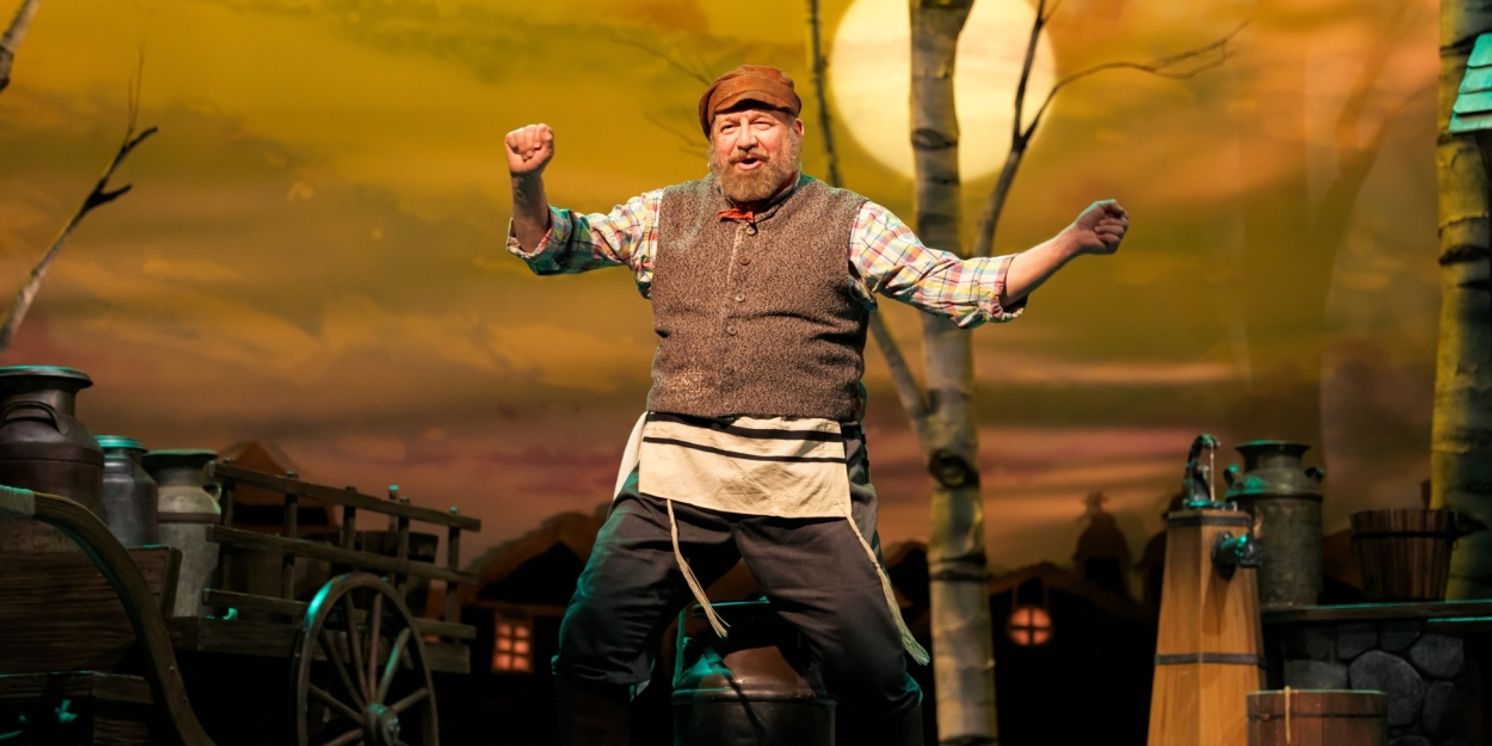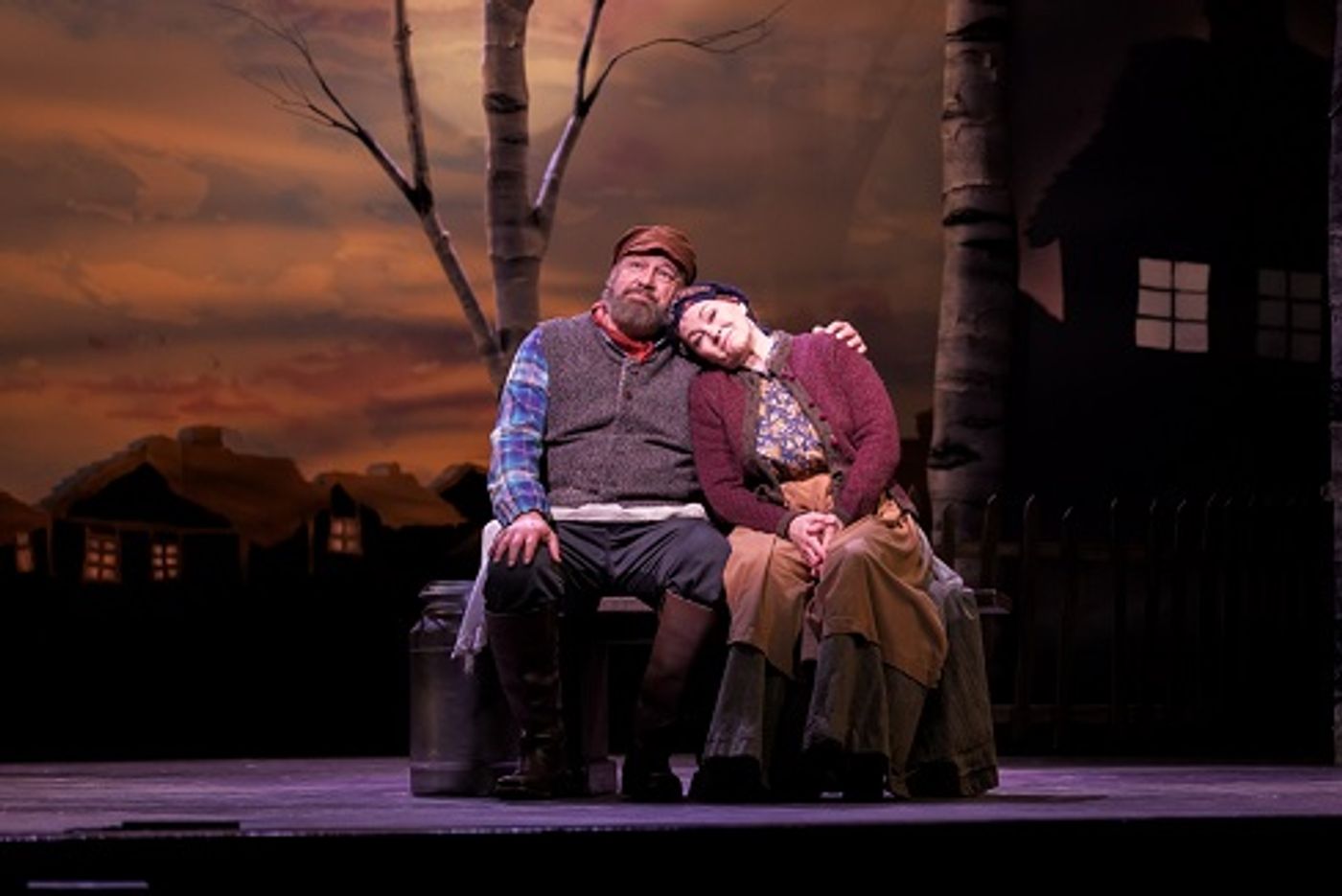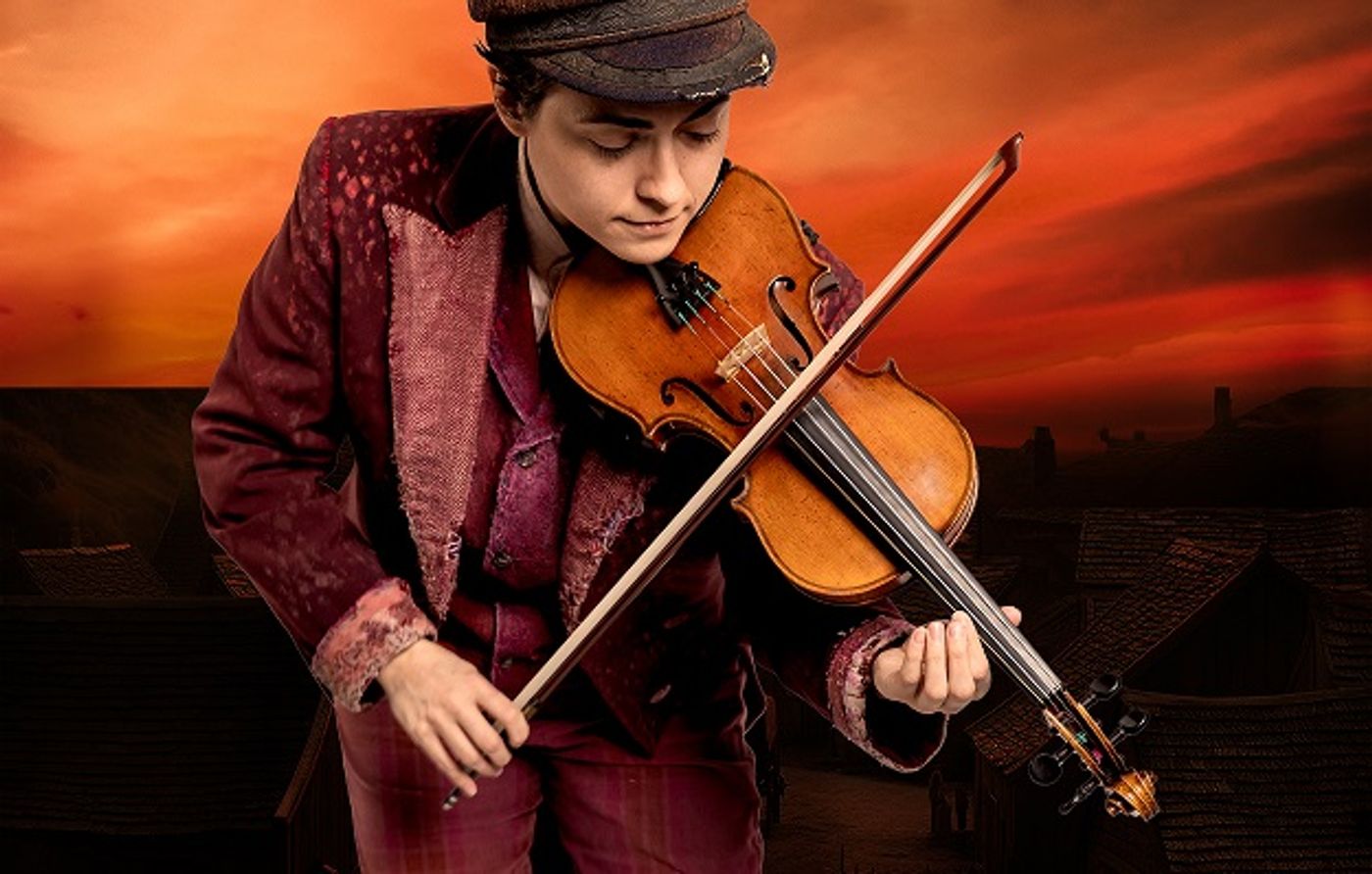Review: FIDDLER ON THE ROOF at The Phoenix Theatre Company
The production runs through July 7th at The Phoenix Theatre Company’s Mainstage Theatre in Phoenix, AZ.

FIDDLER ON THE ROOF has been a staple of American theatre since it first premiered 60 years ago. The musical’s various adaptations on stage and film have delighted audiences, won numerous awards, and made Tevye a symbol of the dutiful and reverent family everyman.
So, Happy Anniversary to a show that has managed to win the hearts of its audiences by virtue of a theatrical trifecta: its sympathetic portrayal of a father and a family coping with the winds of change; memorable songs that evoke a mix of nostalgia, romance, and sentimentality; and a collection of equally memorable characters.
In this regard, this edition of FIDDLER is good and quite entertaining. In its own right, it follows the tradition of the Broadway musical ~ brisk, easy to consume, emotionally uplifting, and endowed with a highly talented ensemble.
Director and choreographer Staś Kmieć knows his way around the show, having been a lead dancer in national tours of the show and having provided the musical staging and new choreography for the 2022-2023 Yiddish production, directed by Joel Grey, at New World Stages off-Broadway.
And, his proficiency shows. The staging is a celebration of artistic collaboration. The orchestra, under the baton of Kevin Robert White, is amazing ~ commanding in its richness and fullness. Douglas Clarke’s set design is sparse but evocative, highlighted by a curving skyline of rural cottages and accentuated by Yelena Babinskaya’s dramatic shifts in mood lighting. Ashley Gamba’s well-tailored period costumes convey the economy of life in the shtetl.
When it comes to choreography, Kmieć has ensured that the ensemble dances with vitality and authenticity. In an interview last year with Hallie Chametzky, dancer and freelance writer, Kmieć detailed his approach to staging the production:
“I always start with “Tradition,” because that bonds people, it tells people who they are, and it introduces the circle. The circle is a theme throughout: the broken circle, reaching for the circle, the unity of the circle and of the community. You know, we go through the steps and people would ask me, “what foot do I start on?” I go, “it doesn’t matter. You’re a village.” That’s one kind of departure from Robbins, which was very specific. It wasn’t the Rockettes, it was a village. My big thing was: there are no dance schools in Anatevka. Everyone had to be real.”
And real it is, as is the case with Scott Davidson’s portrayal of Tevye. The actor delivers a solid and warm-hearted interpretation of the affable and highly conflicted dairyman. His exchanges with God are transactional, accusatory, pleading, and ultimately deferential. His entreaties to his daughters to remain true to the faith are met with resistance, and he must learn to bend and compromise.
At a time when pogroms are on the rise and the seeds of Communist revolution are budding, change becomes very personal and traumatic for Tevye as, one by one, three of his five daughters break from tradition, and he must choose between his faith and parental devotion.
First, Tzeitel (Dani Apple), Tevye's eldest, has secretly committed to marry Motel (Nick Barakos), the village’s timorous tailor. That arrangement gets complicated when Yente (Lori Wilner), the local matchmaker, has promised Tzeitel to Lazar Wolf (James Zannelli).
Then, Hodel (Xandra Abney) falls in love with the Marxist radical, Perchik (Josh Pike). Again, Tevye has to choose between denying a daughter’s desires or blessing them.
The final challenge comes from Chava (Dallyn Brunck) whose attachment to Fyedka (Michael Bingham) means a marriage outside the faith. For Tevye, that is a bridge too far, and he disowns Chava.
Throughout his tense confrontations with God, his daughters, and the almost-menacing Constable (Geoffrey F. Belliston), Tevye can count on one stabilizing force ~ Golde (Jodie Weiss), his wife of twenty-five years and the family’s gatekeeper. When all else seems to be falling apart, Tevye needs to know that his marriage is well-grounded. Thus, the affirmation of their mutual devotion ~ Do You Love Me? ~ is one of the musical’s most tender moments.

As Tevye negotiates with his daughters and weighs the pros and cons of their requests, the iconic Fiddler (Erikka Makić) leaves the roof to play teasingly to Tevye's musings. It’s a delightful device.

Throughout all the scenes of celebration and conflict, the full cast perform their roles with artfulness and vigor. So it is with Tzeitl's touching wedding scene and the vibrant celebration featuring the amazing bottle dance; the hilarious nightmare sequence, fabricated by Tevye to dissuade Golde from accepting the match with Lazar; and the final gut-wrenching exodus from Anatevka.
The show is resplendent with some great vocals, most notably those of Josh Pike and Xandra Abney. When Abney joins with Apple and Brunck, they are a harmonious trio, especially in their rendition of "Matchmaker, Matchmaker," but Abney seizes the spotlight when she sings "Far From the Home I Love" and joins with Pike’s soaring vocals in their duet, “Now I Have Everything.”
In Broadway Song and Story, the renowned arts editor of the New York Herald Tribune, Otis Guernsey collected reflections on theatre by the stage’s great luminaries. Among them was the recollection of FIDDLER’s lyricist, Sheldon Harnick, about the musical’s origin. Jerome Robbins, the choreographer and director of West Side Story, had been selected to direct and choreograph FIDDLER.
“Robbins kept asking and hammering at us [playwright Joseph Stein, librettist Jerry Bock, and Harnick] for months: ‘What is this show about?’ If we gave him an answer like, ‘Well, it’s about this dairy man, and he has three daughters,’ he would reply, ‘No…. We have to find out what it is that gives these stories their power.’ I don’t know (who) finally said it: ‘Do you know what this play is about? It’s about the dissolution of a way of life.’ ‘If that’s what it’s about,” Robbins said, ‘then we have to show more of the way of life that is about to dissolve. We have to have an opening number about the traditions that are going to change. This number has to be like a tapestry against which the entire show will play.’ And that was the beginning of ‘Tradition.’”
Thus, the great creative minds of Broadway offered “tradition” as the thematic frame for FIDDLER and produced what other critics have dismissed as a sanitized but entertaining account of love, faith, and exile in the time of rampant antisemitism. This was the Russian Empire in its heyday, ruled by Tsar Nicholas II, whose human rights abuses included a steady flow of anti-Jewish propaganda and, in 1905 (the year in which FIDDLER begins), a rash of pogroms throughout the nation. The place was the Pale of Settlement where the fictitious village of Anatevka was located. The outcome was forced migration into an uncertain and ill-fated diaspora.
For all the controversy and criticism of the musical (what Philip Roth decried as shtetl kitsch and other critics denounced as “culturally sanitized” and “superficial”) and its representations (for example, the unlikely compassion of the Constable or Fyedka’s daring to equate Tevye’s refusal to accept Hava’s conversion to Christianity with the czarist persecution of the Jews of Russia), what is undeniable is the quality of this particular production as entertainment. It is ultimately left to the discerning audience to deliver a verdict on its merits.
FIDDLER ON THE ROOF runs through July 7th at The Phoenix Theatre Company’s Mainstage Theatre.
The Phoenix Theatre Company ~ www.phoenixtheatre.com ~ Box office: 602-254-2151~ 1825 N. Central Avenue, Phoenix, AZ
Photo credit to Billy Hardiman: 1. Scott Davidson; 2. Scott Davidson and Jodie Weiss as Golde
Photo credit to Brennen Russell, Blink Sessions Photography: Erikka Makić as The Fiddler
Reader Reviews
Videos

